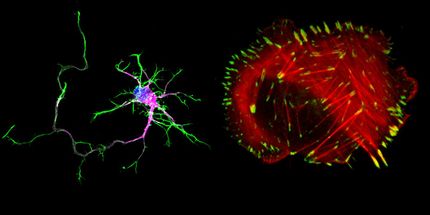New Colon Cancer Gene Licensed Exclusively to Myriad Genetics
Myriad's Predictive Medicine Sample Flow Continues to Grow
Advertisement
Salt Lake City. Myriad Genetics, Inc. , announced that it has licensed exclusive rights in the United States to detect mutations in an important new colon cancer gene. Myriad believes that the new colon cancer gene, known as Mut Y Homolog (MYH), will provide improved sensitivity and predictive utility to the Company's COLARIS(R) product line for detecting all major forms of hereditary colon cancer. The Company expects to introduce the enhanced test during the next quarter as an integral component of its COLARIS range of products, and also as a stand-alone test.
"We are pleased to extend our tradition of providing highly accurate and sensitive predictive medicine testing products," said Gregory Critchfield, M.D., President of Myriad Genetic Laboratories, Inc. "Continual evaluation, enhancement and refinement of our products helps assure that patients and their physicians receive the most informative results possible for use in healthcare decision making."
Myriad's COLARIS and COLARIS AP(R) products are increasingly penetrating the existing market for colon cancer prediction and are being readied to expand into the broader potential hereditary colorectal cancer market through addition of MYH gene mutation detection. Concurrently, Myriad's BRACAnalysis(R) line of products and MELARIS(R) continue to perform well. The Company now receives more than 500 specimens for testing each week, which compares with approximately 450 samples per week at the end of last quarter, a quarter-to-quarter increase of over 10%.
MYH is a DNA repair gene that corrects DNA basepair mismatch errors in the genetic code prior to replication. If the MYH gene is mutated and non-functional, the DNA repairs are not made and colon cancer can result. The MYH gene has been found to be significantly involved in colon cancer, both in cases where there is a clear family history of the disease and in cases without any sign of a hereditary cause. This fact was demonstrated in a study of 111 British subjects published in the journal Lancet. The study participants each had more than 10 polyps, no family history of colon cancer in their parents or their children, and were negative for mutations in the APC colon cancer gene that causes familial adenomatous polyposis (FAP). The study found that a surprisingly high total of 25 individuals (23%) were positive for mutations in the MYH gene.
A second study, published recently in the New England Journal of Medicine and led by Oliver Sieber, BSc. and Lara Lipton, MB, BS, at the London Research Institute, also examined patients who had no known gene abnormality but had multiple colorectal polyps. The study found that about 1/3 of people who had more than 15 polyps but fewer than 100 had two mutated copies of the MYH gene. Of the people with more than 100 polyps, 7.5% had two mutated copies of the MYH gene. While further work is required to fully elucidate the implications for those with a mutation in just one MYH gene, some researchers have suggested that it may increase the risk of colon cancer in such individuals as well.





























































